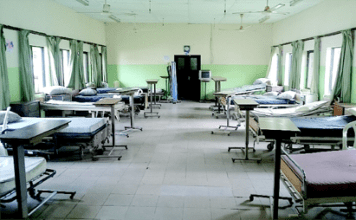The Federal Capital Territory Administration is seeking collaborative partnerships to enhance and expand Primary Healthcare Centres for FCT residents. Dr. Adedolapo Fasawe, Mandate Secretary for Health Services and Environment Secretariat, emphasized the need for partnerships with local and international organizations during the USAID Integrated Health Programme close-out ceremony in Abuja.
She highlighted the importance of collaborations to strengthen the Territory’s healthcare system, including infrastructure development, logistics, and personnel expansion. Fasawe praised the USAID IHP as a successful model for partnership-driven initiatives.
The Mandate Secretary said, “Well, the truth is, we have over 300 PHCs in the FCT, for a population of about 4.3 million. It is not that surprising that some of the PHCs are not manned. There is a shortage of human resources in health, globally.
“So what we have tried to do is, with this administration, we are transferring skills and training community health workers to man those PHCs. We do have a lot of infrastructure in the FCT. However, it’s unfortunate that we do not have enough human resources to man those places. But with this kind of project and programs by USAID IHP, we have been supported to train community people to give out the basics.
“And in terms of drugs, we are strengthening our drug-revolving system. We will make sure that at no point in time would you go to a PHC and they will tell you there are no drugs in stock. As we talk currently, we have drugs in almost all the PHCs that people access.
“At times we put medication there, we put people there, and they expire. So also we kind of look at health-seeking habits, we look at the topography before sharing our scarce human resource to man those places.”
Fasawe emphasized the need for other development partners to follow the USAID IHP’s lead and adopt a similar approach to supporting the healthcare system in the FCT, highlighting the success and impact of this collaborative model.
She added, “The truth is, the programme talks about improving, which is a continuous thing. We haven’t gotten it right quite yet. If I had my way, I would ask this program to stay and continue to work with us hand-in-hand to improve and make our health indices in FCT one of the best in the country.
“What we have gotten with IHP over the past four years is they have been able to help us strengthen the system. For example, explaining to us, healthcare seekers and healthcare givers the importance of two-way referral. Now, due to this intervention, we have been able to almost perfect our referral system.
“When you go to the primary healthcare centre, you are documented electronically and you can be referred. We have about 60 sets of close user group telephones that were donated to us through this project.
“Now, our two-way referral system is very smooth. Before a patient is taken from one spot to the other, somebody is expecting her or him at the other end. And also regarding maternal mortality, which is something that we have zero tolerance for in this administration. No woman, no woman at all, should die of childbirth complications.
“USAID-IHP and this project have helped us very much to look at low-hanging fruits, how can we reduce maternal mortality, through education, and advocacy, by sensitizing, and finally, the FCT has made health insurance free for pregnant women that reside here.
“Not only indigent but reside within the FCT. Come to our nearest health facility, if you are pregnant, and register for health insurance. And your delivery and that baby for the first year of its life will be taken care of, free of charge”.
Dr. Frances Adewumi, USAID IHP FCT State Director, pointed out that the concluding program involved comprehensive interventions in 162 Primary Healthcare Centers (PHCs), covering key areas like data management, financial management, monitoring and evaluation, logistics, infrastructure development, and training.
She stressed the need to develop a strategy to sustain and expand the USAID-IHP initiatives to other health facilities in the Territory that were not part of the program.
Meanwhile, healthcare managers and workers from the benefiting facilities expressed their appreciation and commitment to applying the knowledge gained during the five-year program to ensure the continuity of the interventions.
